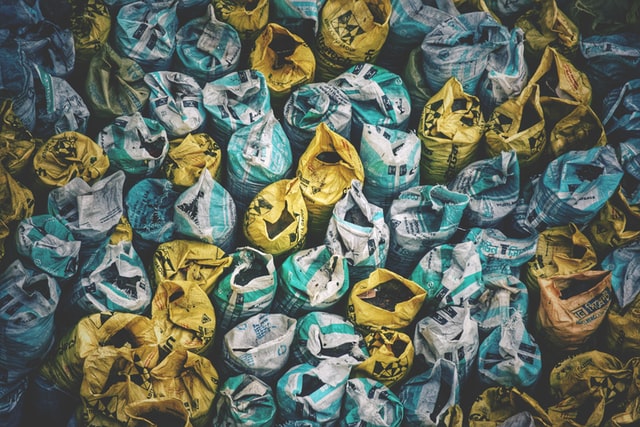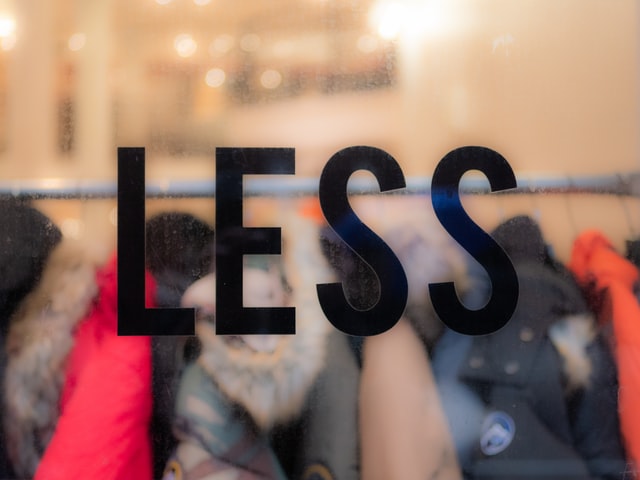If you want to make your business more sustainable in 2021 and bounce back from the current economic crisis, reducing your business waste is a great place to start.
Even if you believe you already have an effective waste reduction strategy in place, taking a closer look will help you find ways to make additional improvement. And it’s not just your business that will benefit- you could also lower costs, attract new eco-friendly customers and encourage private households to follow your excellent example.

“Businesses have a big impact on how well recycling in the UK is shown so it is important for them to set the trend and reduce and improve their waste and recycling in the most efficient and eco-friendly way possible,” says recycling experts QCR Recycling Equipment.
Here are five great ways to reduce your business waste and help protect our planet for future generations.
Review your green habits
By performing an environmental audit, you can review your current waste and recycling management efforts and potentially find ways you can improve.
For example, you might find that a huge amount of plastic is simply ending up in the general waste and not getting recycled. Or perhaps you discover that certain pieces of equipment are being left on overnight unnecessarily and still draining.
Using this information, you can look more closely at identifying the root of the problem and then finding a greener solution. Be aware that this process could potentially do much more than just reducing your waste- many businesses find that they also help them save money, become more efficient, gain certification and meet specific environmental standards.
Optimise your recycling habits
Most UK businesses and homes understand the importance of recycling, yet many don’t recycle as much of their waste as they could.
According to recent government statistics, just 48.5% of business waste was recycled in 2016 and 44.9% of household waste. Clearly, there are huge improvements that can be made in this sector.
However, the problem doesn’t lie in waste awareness or business policy but in the day-to-day habits of employees, staff or household members. We must ensure that everyone understands how their practices can contribute to the overall recycling effort and how they can do that. Does your team understand what can be recycled and what can’t? Do they know which bins they should use? If not, have those conversations with those staff or household members, create posters, welcome questions and put your recycling policy near the top of your list of priorities.
Members of the household or staff should know how to recycle effectively: which bins need to be used, what can and can’t be recycled and the importance of washing residue from items before they are sent for recycling. Create posters, have conversations during team meetings and make sure everyone is on the same page.
Reduce your packaging
According to a Reuters special report, with the increase of home delivery, online shopping, and takeaway food delivery since the pandemic started, we’ve generated more waste from plastic packaging than ever before.
Although this shift is understandable, given that plastic is considered to be more convenient and hygienic, this is adding pressure to the already fragile ecosystem. As a business owner and consumer, you can push back against the changes and continue to promote more eco-friendly practices, despite the coronavirus.
Use this as your opportunity to make your packaging more eco-friendly. Ditch plastics and consider using reusable glass containers. Opt for recyclable materials such as paper and cardboard. Even consider how you can use biodegradable and compostable packing materials instead.
Likewise, choose your suppliers according to the materials they use in their packaging and encourage other businesses like yours to adopt more eco-friendly practices.
Think twice before hitting ‘print.’
Paper is indeed biodegradable, but that’s certainly no reason to waste it. It uses precious natural resources such as water, trees and fossil fuels, releases huge amounts of pollution into the atmosphere and creates significant waste. For that reason, you should avoid printing documents wherever possible and think of creative, digital solutions instead.
“In almost all areas of business, it’s now possible to get rid of paper entirely,” say digital accounting software providers Xero, “Digital documents are simpler, easier to store and send, more searchable and more versatile than paper.”
This may mean changing habits or spending a few minutes learning to use a new piece of software, but it will make a huge difference to your business’ ecological footprint and also your budget. If you have to print, make sure you’re printing on both sides of the paper and consider reducing margins so you can get more content on the page.
Only purchase what you need
Many businesses struggle under the strain of excess stock. They can’t shift or need to throw away because it expires before used. In fact, according to the Grocer, UK supermarkets and producers alone throw away an astonishing 100 000 tonnes of food per year.
This unnecessary waste has an enormous impact on the planet, using precious raw materials, fossil fuels, time, energy and creating emissions that further affect the earth’s state. For this reason, consider how you could tweak your inventory or stock to ensure nothing goes to waste.
By doing this, you could also increase the demand for your product or service and could potentially command higher prices if required. After all, what encourages you to visit an ice cream shop earlier in the day than knowing they’re going to sell out of your favourite flavour!
Final thoughts
Despite the pandemic’s added pressures, there are numerous ways you can reduce your business waste in 2021. Start with a waste audit, up to your recycling game, avoid printing, switch to eco-friendly packaging and reduce your inventory to the essentials to help protect the planet’s future.



